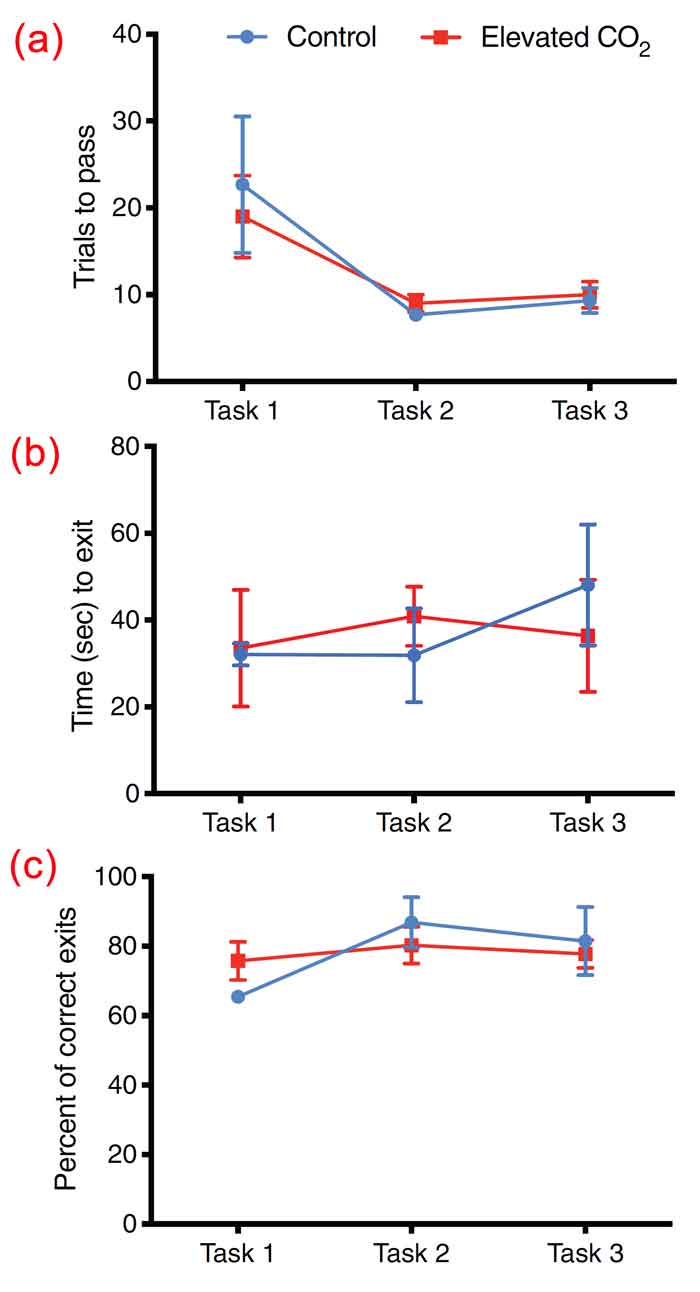| Tweet | Follow @co2science |
Paper Reviewed
Spady, B.L. and Watson, S.-A. 2020. Bigfin reef squid demonstrate capacity for conditional discrimination and projected future carbon dioxide levels have no effect on learning capabilities. PeerJ 8: e9865, DOI 10.7717/peerj.9865.
Writing to introduce their study, Spady and Watson (2020) note "the effects of elevated CO2 on learning in advanced invertebrates such as cephalopods are unknown" despite the fact that "any impacts to the learning abilities of cephalopods could have far-reaching consequences for their populations and the communities they inhabit." And so it was that the pair of Australian researchers set out to examine the impact of elevated CO2 on the conditional discrimination of bigfin reef squid (Sepioteuthis lessoniana). Conditional discrimination entails complex or higher-level learning and is defined by the authors as "the ability to control discernment between different options through a sensitivity to context, which has significant benefits to individual performance" and "undoubtedly contributes to the continued ecological success of the species."
In accomplishing their objective, Spady and Watson subjected twelve naturally-caught reef squid to a three-task experiment inside a two-choice aquarium arena under two seawater pCO2 conditions to test their learning and conditional discrimination. The two pCO2 treatments included ambient seawater (502 µatm CO2) and an elevated CO2 treatment considered a worse-case scenario for the end of the century (RCP8.5 emission scenario with 1,084 µatm CO2).
The results of the experiment were quite definitive, with Spady and Watson reporting "elevated CO2 had no effect on the capacity of S. lessoniana to conditionally discriminate." What is more, they report elevated CO2 "did not have an effect on any of the traits measured within this experiment including [1] the number of trials taken to complete each task, [2] time to exit the arena, and [3] percentage of correct exit choices within each task" (see Figure 1), which "suggests that elevated CO2 also has no effect on the learning or long-term memory of S. lessoniana."
In commenting on their findings the authors write their experiment has "brought to light some of the remarkable cognitive abilities of S. lessoniana, and suggests that seawater pCO2 projected for the end of the century under a worst case scenario does not inhibit these abilities." And that is wonderful news for a key species that according to the authors has "one of the largest global distributions of any inshore squid."

Figure 1. Panel a: mean number of trials (±SE) performed before successfully meeting the passing criteria for each task in control and elevated CO2 squid for those individuals that successfully passed all three tasks. Panel b: mean exit time (±SE) in successful trials for each task in control and elevated CO2 squid for those individuals that successfully passed all three tasks. Panel c: mean percentage of trials (±SE) in which squid chose the correct exit within each task for control and elevated CO2 squid for those individuals that passed all three tasks (the error for control animals at Task 2 is very small and cannot be visualized at this scale). Source: Spady and Watson (2020).




